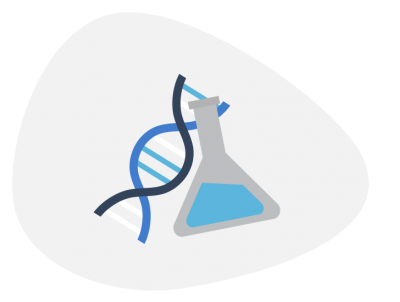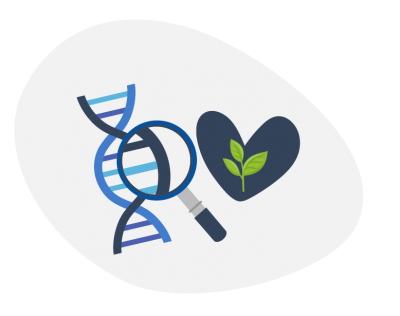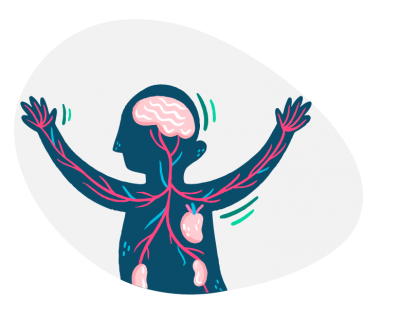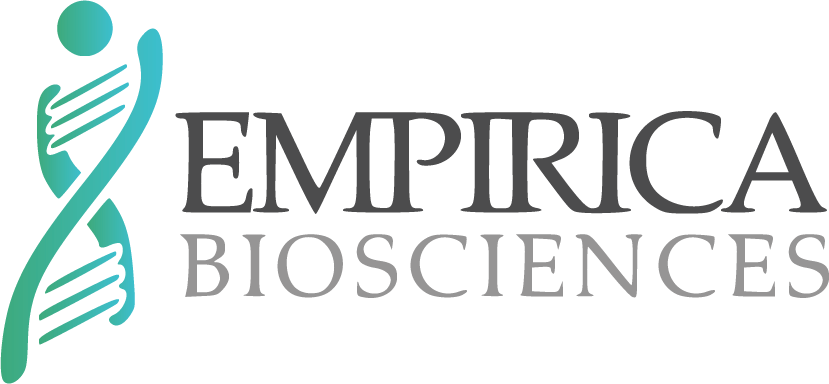What we do
Empirica Biosciences uses microarray genotyping and next-generation gene sequencing technology to test DNA extracted from saliva samples. In the standard test, >20,000 variants known or likely to be associated with disease in ~1,800 genes are tested. The results of this test determine whether you have the variant or the reference (‘normal’) sequence at a specific set of genetic sites. In the premium test, the protein-coding regions of all ~20,000 genes are tested and, using bioinformatics techniques, genetic variants are detected based on a comparison to a reference genome. For both tests, we deliver a comprehensive report of your results, with a detailed description of any detected variants that are classified as “pathogenic” (disease-causing) or “likely pathogenic” according to the American College of Medical Genetics and Genomics guidelines.
Our tests
We test all ~20,000 genes. We only test the region of the gene that contains information for making proteins (exons), using a technique known as whole-exome sequencing. All variants known or likely to cause disease are identified and included in the final report.
| Type of Test | Standard | Premium |
|---|---|---|
| No. of genes | 1,764 | ~20,000 |
| No. of variants | 22,836 | >120,000 |
| Technology | microarray genotyping | whole-exome sequencing |
| Cost | 23,000 + VAT | 55,000 + VAT |


Genes
Genes are cellular units made up of DNA molecules. They contain instructions to make proteins, which are essential structural and functional molecules in living organisms. Humans have approximately 20,000–25,000 genes. Each gene has two copies, with one copy being inherited from each parent. Individuals are 99.9% identical in their genetic make-up (genome). The remaining 0.1% determines your individual traits, but can also determine your risk of disease. The genetic sites that differ between individuals are known as variants. While most variants are largely harmless, in some contexts, they can lead to serious illnesses.
Cancer
Cancer is a serious medical condition in which the normal machinery of cell division is interfered with, causing affected cells to continue to proliferate uncontrollably. This uncontrolled proliferation affects the function of the organ where the cancer cells originate, but some cancer cells also have the ability to spread to other parts of the body. Cancer has several causes, including exposure to carcinogens, such as UV rays and chemicals present in cigarette smoke, which can damage your genes. However, in some cases, one could also be born with variants or a predisposition to mutations in genes linked to cancer.


Heart Disease
Heart disease is a broad term for diseases that affect the circulatory system. They include congenital heart disease (heart defects present at birth), weakened heart muscles (dilated cardiomyopathy), abnormal heart rhythm (arrhythmias) and heart disease due to high blood pressure. These diseases can be caused by genetic factors and they can be exacerbated by an unhealthy lifestyle, such as lack of exercise, poor diet and excessive tobacco and alcohol use.
Carrier Screening
Carrier screening is a type of genetic test that can tell you whether you carry a gene variant that is known to cause a specific disease. This kind of testing is used most often by couples who are considering becoming pregnant, to determine the risks of their child inheriting one of these genetic disorders. For some genetic disorders, it takes two copies of the gene variant for a person to have the disease. This is called a recessive disease. A carrier is a person who has only one copy of the variant. Carriers usually do not have symptoms or may have only mild symptoms. They often do not know that they have a genetic disease variant. Carrier screening usually focuses on severe diseases that affect a person’s quality of life from an early age. These include cystic fibrosis, fragile X syndrome, sickle cell disease, and spinal muscular atrophy.

